Australian celebrity doctor Ginni Mansberg's path to success
- Published
Ginni Mansberg explains how she landed her dream job as a celebrity doctor
I find Dr Ginni Mansberg sitting at a small desk, tapping away on a keyboard in her crowded and colourful Sydney office.
As she studies her online calendar, she shows me how the hours and minutes of her day are dissected into colour-coded squares.
"I've got my hands in many pies," she says.
In addition to being a television celebrity doctor, Ginni runs a busy medical practice as well as her own beauty-related business.
She also serves on numerous boards, lectures at university, consults for large companies, and is a magazine columnist.
And to top all that off, she's a mother to six children. So I believe her when she says she rarely has time to eat lunch, let alone take a bathroom break.
Lady luck?
In between seeing her patients, Ginni tells me about how she became a celebrity doctor.
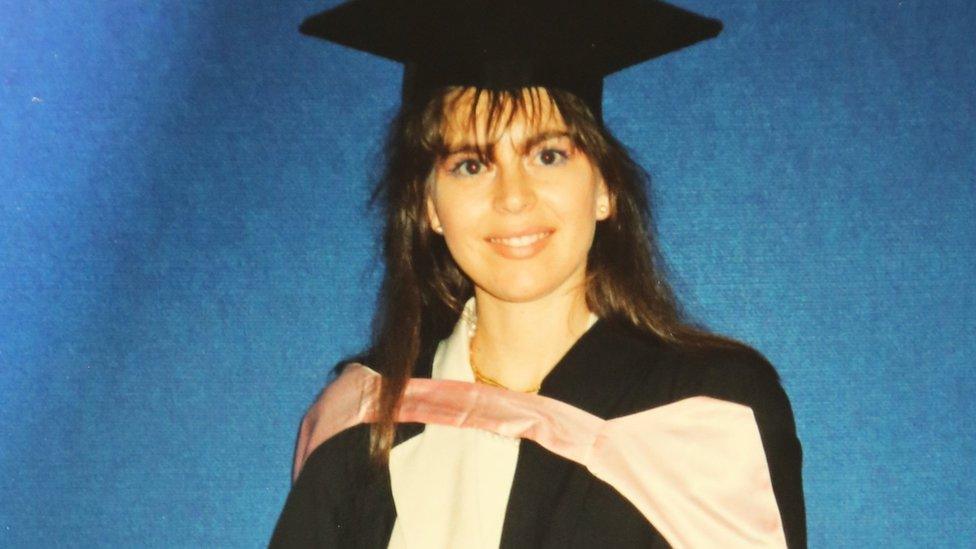
Ginni was nine months pregnant when she finished her medical residency
Firstly, she says she didn't get to where she is today through meticulous planning. Her career has been shaped more by the changing needs of her family - and a lot of luck, she says.
After finishing her medical degree in the late 1990s, Ginni promptly gave birth to her first child.
"I was 24 years old with a baby and I was happy. Staying at home worked for me - for about six months. And then it didn't."
So Ginni got her general practice up and running in between having two more children. But she found it difficult to manage her family and full-time work - particularly with a practice that was so demanding.
So another change was needed, she tells me.
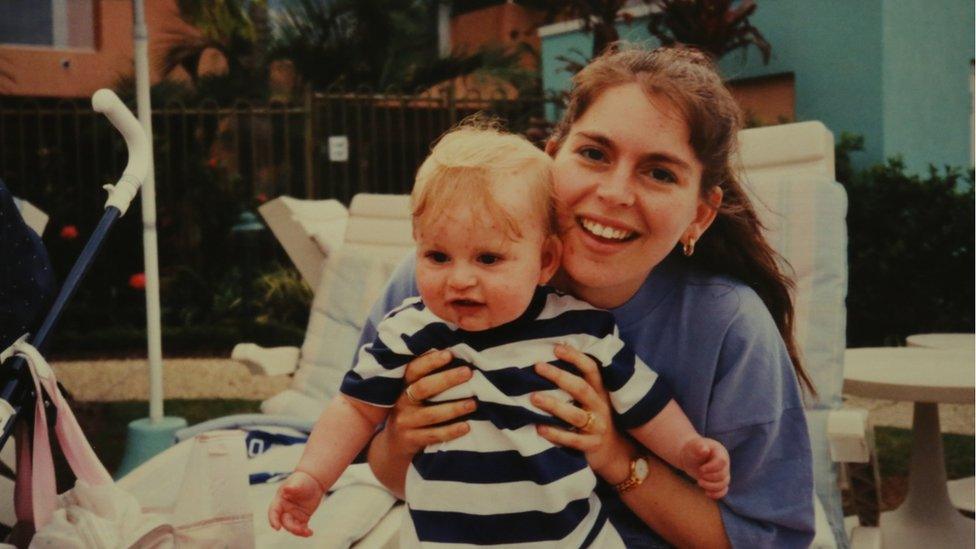
With three young children and a private practice, Ginni says she soon figured out she needed to reshape her career to better fit her family's needs
She went back to school, this time to study journalism. Her aim? To put her medical knowledge to use another way and to try and work from home.
Ginni says she started small, writing up medical news stories for industry publications. She also worked in a methadone clinic at weekends to help a friend and boost her income.
Things were working out a little more easily than they had been when she was working full-time, she says, but then her personal life took a turn for the worse.
Road blocks?
"I got divorced, and that was quite a big trauma in every way," she says.
"One big way that was unforeseen was that I needed to earn a lot of money and I wasn't going to earn that doing what I was doing."
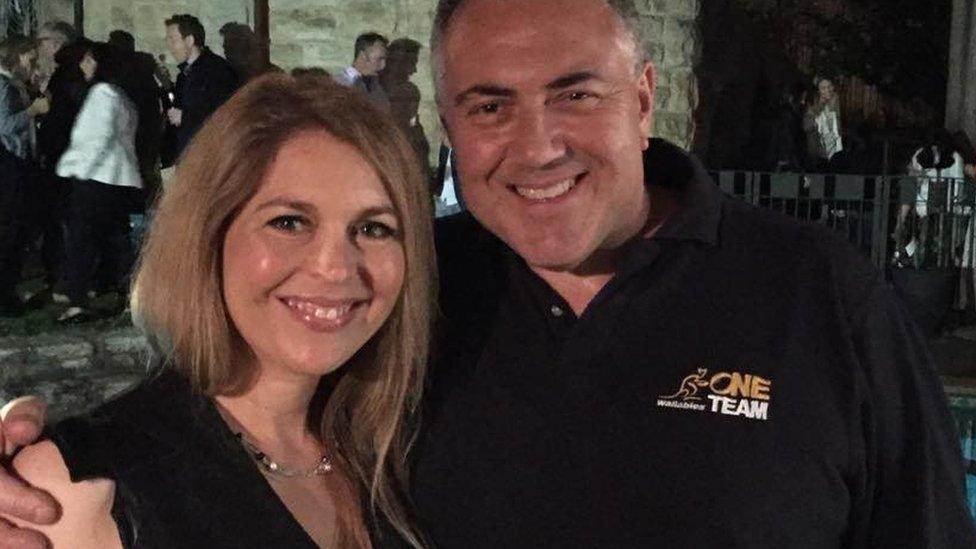
In 2008, Ginni landed a job as an adviser to Joe Hockey, who was then shadow minister for health and ageing
"There was an ad in the paper for someone with media and medical experience... and it was to work for Joe Hockey [shadow minister for health and ageing at the time]," she says.
"I was thinking, 'I've watched The West Wing, I can write, I'm a doctor, I can do this.'"
When she rang to find out more, she was told the position wasn't really suitable for a mother and that it would be too intense.
Yet she submitted her application nonetheless, and moved straight into politics.
Politics, publishing and television
Ginni served as a political adviser to Mr Hockey for a year before moving swiftly into the world of publishing.
Her first book, Why Am I So Tired?, sold about three copies, she says with a grin.
One of those copies ended up on the desk of the editor for Women's Health magazine, just as that editor was looking for a doctor to join the magazine's staff.
Soon after she signed on to Women's Health, the magazine was bought by Australia's Channel Seven media network - broadcasters of the popular Sunrise breakfast news programme.
And that was the beginning of her career in television.
She started getting requests to appear on the show, mostly to talk about women's issues. Over time, she solidified her role as a reliable TV doctor and someone the Australian public could relate to.
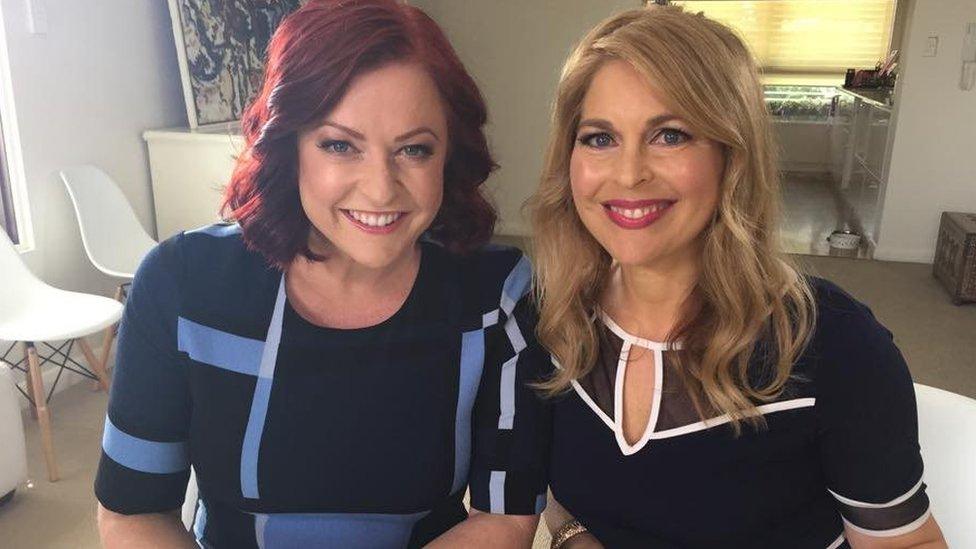
Ginni with co-host Shelly Horton for the television series Things You Can't Talk About on TV
But even with all of this experience under her belt, she says she didn't quite believe she was an authority on the business side of things - an area she thought she might like to move into next.
"As a girl and as a young woman I would have told you I had no idea about money, no idea about business. But it turns out I'm actually pretty good at business. I actually have skills I didn't know I had."
Into business
So today, Ginni is putting those skills to work. Four years ago, she and her current husband, Daniel Rubinstein, started Aurora Care, a private label anti-ageing skincare line.
It was an idea that came about over wine and pizza, she says, and turning it into a fully fledged company was a steep learning curve.
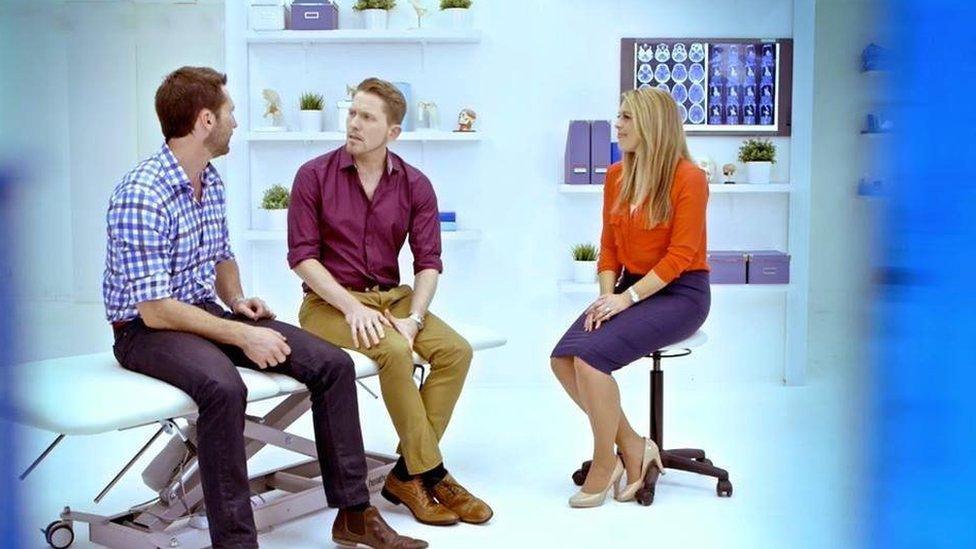
A men's health special of Embarrassing Bodies Down Under, an Australian version of Britain's award-winning programme
"I've seen so many small businesses run ahead of themselves since they've got all these great ideas and torch all of their cash flow," she explains.
"But we've been measured and very careful and managed to retain every aspect of our brand by making sure to never squeeze our cash flow."
And their business strategy seems to be working. This year, Ginni and David launched a retail line and expanded into China.
"Today the business is going gangbusters and it's the thing I'm most passionate about," Ginni says.
As we wrap up, I ask Ginni about her recipe for success. She tells me it's simple.
"I think you need to really believe in what you're doing.
"If you love what you are doing, but more importantly, if you have retained your ethics and retained your dignity and principles, and you can hold your head high... your life is much easier."